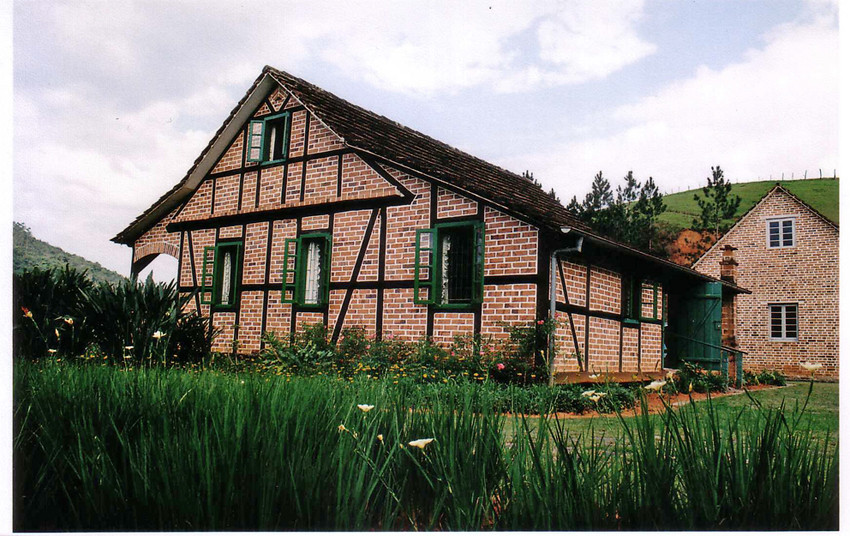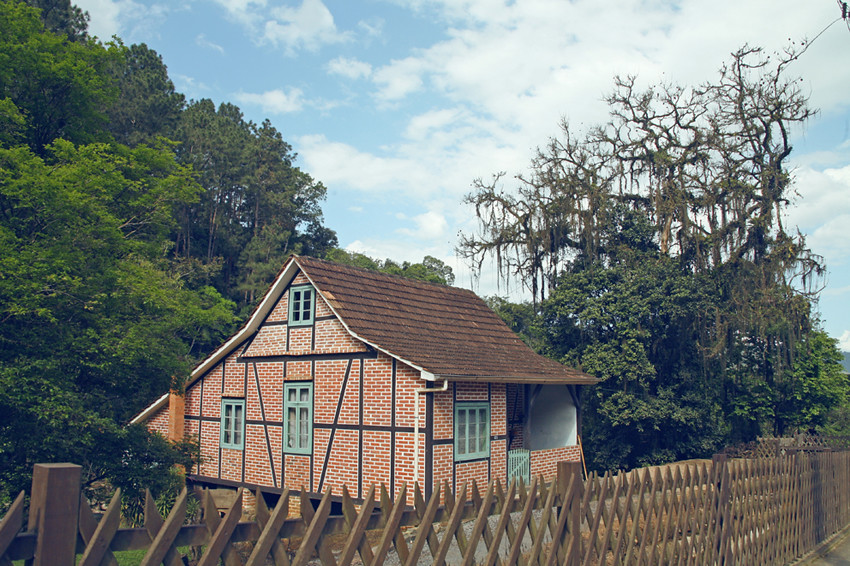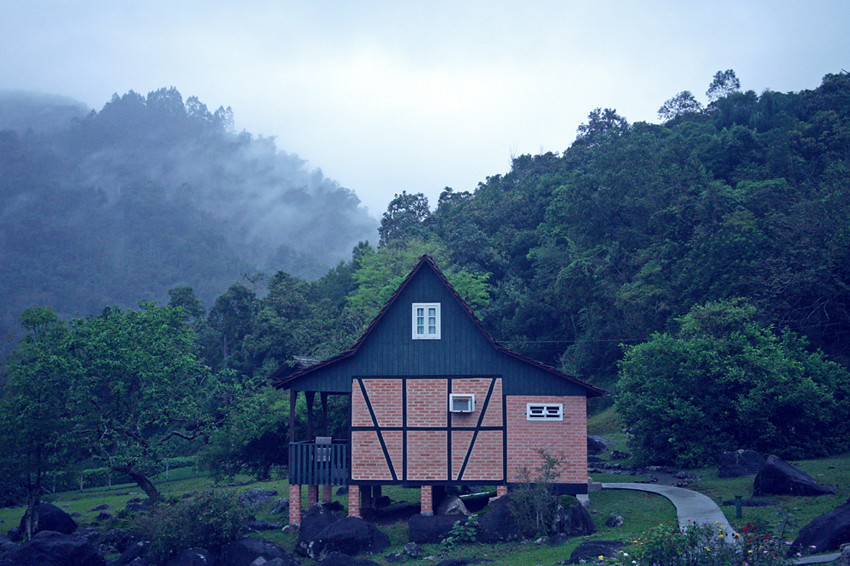About thirty kilometers to the north of Blumenau, a city in Brazil, lies the town of Pomerode, so named because its founders came from Pomerania, a region on the southern shore of the Baltic Sea, split between Germany and Poland. The town was founded more than 150 years ago, yet even today, ninety percent of the town’s 25,000 inhabitants speak German with a distinct 19th century Pommersch accent.
Pomerode is probably one of the “most German towns in Brazil.” This is immediately apparent as soon as one enters the town through the arched gateway. Every cottage and building is built in the traditional German style characterized by exposed brick within a frame of exposed wood, that recalls a rural German setting from the 1900s.
Photo credit: Mathias Fingermann/Flickr
Pomerode isn’t the only German town in Brazil. There are a lot of Germans living in the southern part of the country. Their ancestors had left home in successive waves of emigration beginning in 1824 and accelerating after the failed revolutions of 1848, settling in the United States and in South American countries such as Brazil. Immigration continued well into the 20th century, with another major influx occurring immediately after the First World War. Between 1824 and 1969, around 250,000 Germans emigrated to Brazil, where they constitute the fourth largest immigrant community to settle in the country, after the Portuguese, Italians and Spaniards.
Even though the immigration of Germans to Brazil was small compared to the numbers who went to the United States, it had a notable impact on the ethnic composition of the country, particularly in the south of the country. By the end of the 19th century, 13.3% of the population in Rio Grande do Sul was of German descent, and that figure rose to 21.6% in 1950.
In the book “The Monroe Doctrine”, T B Edgington explained the growth phenomenon:
The natural increase of the German population in southern Brazil is marvelous. As a rule they rear from ten to fifteen children in each family. Blumenau, a colony which was settled by the Germans over fifty years ago, more than doubles itself every ten years. Southern Brazil is now called ‘Greater Germany’, and the Germans exercise there a commercial and financial supremacy.
For a good part of the 20th century, the Brazilian government did not encourage people to speak German. During the days of Getúlio Vargas's presidency, speaking German was actively repressed and prohibited. But over the years the government has become more tolerant of Brazilian Germans, acknowledging their existence and embracing the culture of the German population. Today, German is part of the curriculum in local schools.
Photo credit: Marinelson Almeida/Flickr
Photo credit: Marinelson Almeida/Flickr
Photo credit: Marinelson Almeida/Flickr
Photo credit: Juliano Mendes/Flickr
Sources: Wikipedia / Wikipedia / Failed Architecture



















Thanks for doing your research and giving people proper information.
ReplyDeleteIt's worth noting that the German, Italian and Japanese languages and cultures were repressed, even though they were the languages of major groups of immigrants, because Brazil was an ally country during the World War II. They managed to keep their roots stronger in towns like Pomerode because they were more isolated in the country. People in cities like São Paulo had a harder time.
Ironically, Getúlio was a dictator himself and implemented fascist policies here, like our system of labor laws and "rights".
You can see other nice settlements and colonial Brazilian towns through the pages of this thread: http://www.skyscrapercity.com/showthread.php?t=847912#post_message_35039158